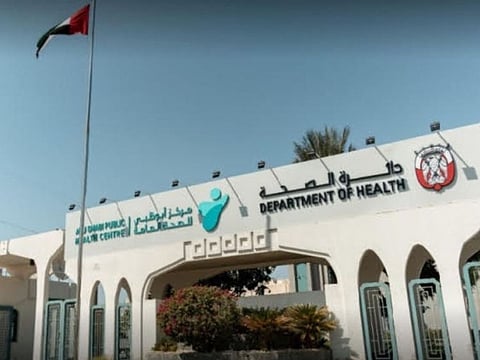Abu Dhabi Public Health Centre expands services to include public health pest control
ADPHC broadens scope to manage pest control requests, ensuring community health and safety

Abu Dhabi: The Abu Dhabi Public Health Centre (ADPHC) has expanded the scope of its services to include public health pest control, becoming responsible for and handling requests for public health pest control, in public areas and homes throughout the Emirate of Abu Dhabi.
The ADPHC will now handle public health pest control services; it will manage requests and reports for pest monitoring and control in homes, public spaces, and facilities.
Dr Ahmed Al Khazraji, Acting Director General at ADPHC, said: “The Abu Dhabi Public Health Centre remains dedicated to prioritising community health, safety and wellbeing. This commitment is fulfilled through the provision of pest and disease vector control services aligned with the highest international standards and practices.”
Expert teams
Specialised and expert teams use advanced equipment and techniques to monitor and control public health pests and disease vectors.
“Recognising the pivotal role of pest control in preventing the spread of infectious diseases, the centre is steadfast in its mission to uphold public health,” Dr Al Khazraji added.
In collaboration with strategic partners, the centre will also implement upskilling programmes for pest control professionals to enhance their skills.
This will also improve scientific research on disease vectors, including the development of effective control methods through experiments and the evaluation of control materials and pesticides’ efficiency in laboratories and the field.
Community campaigns
The centre will launch community campaigns focused on raising public awareness about the crucial role of controlling public health pests. Emphasising the importance of taking preventive measures, the campaigns contribute significantly to reducing the proliferation of disease vectors and other pests in both biological and societal contexts.
Dr Farida Al Hosani, Executive Director of Infectious Diseases at ADPHC, said: “ADPHC will assume the responsibility of addressing reports concerning the proliferation of pests in open areas and homes. Additionally, it will oversee the permitting processes for all activities related to pest control within the emirate.”
Furthermore, the centre will manage the regulation and distribution of pesticides, ensuring their optimal and safe usage while prioritising adherence to prescribed procedures and warnings, she explained.
“These efforts are integral to the comprehensive public health pest control system, emphasising personal, community, and environmental safety,” Dr Al Hosani said.
Monitoring, investigation
The centre aims to improve the monitoring and investigation of infectious diseases by connecting information and procedures related to disease examination and investigation with data on the spread of disease vectors.
This integration is designed to facilitate the efficient management of infectious disease transmission within the emirate, enabling the implementation of targeted vector control measures based on geographical distribution.
The responsibility of pest control services has been transferred from Abu Dhabi Waste Management Company (Tadweer Group) to ADPHC, while Tadweer Group continues to handle waste management services. The scope of pest control services includes managing disease-carrying pests such as mosquitoes, flies, rodents, ticks and others, along with addressing potentially dangerous pests like snakes, scorpions, spiders and wasps.
Hotline: 800555
For pest control services, individuals, farms and homeowners can contact the Government Contact Centre at 800555 or register a request using the pest control services through the TAMM platform.


